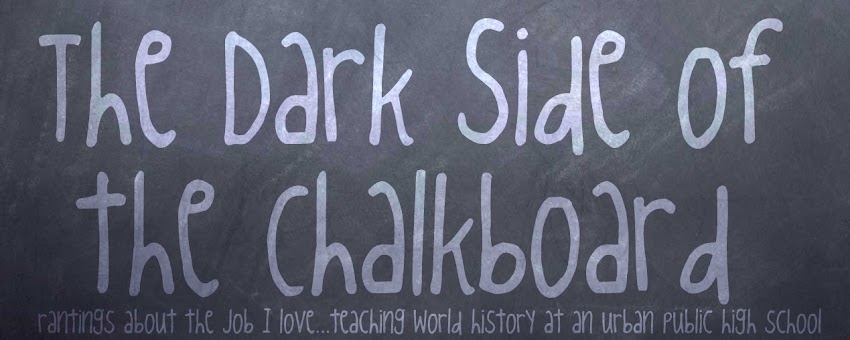AP stands for "Advanced Placement" and is a high school class which can get a student college credit. Having been in both high school and college at various times in my life, I can tell you that the class is more strenuous than any basic college level class, and most of my upper level college classes as well. It is pretty rough, and asking a 16 year old kid to do what they are expected to do on the AP test is pretty impressive. So I am doing the training to teach the class, even though I have no intention of teaching AP. It is interesting to learn the information and teaching methods, even though sometimes I thought, "there is no way my kids could ever do what this woman's students can do..."
Also...I previously posted reviews of two of the books that I have to read this summer. Here are the next two. The first book is called Origins of the Modern World by Robert Marks, which I had to read for this AP training, and the second is called Season of Migration to the North by Tayeb Salih, which is one of the seven novels I have to read for the Teacher's Institute.
Origins of the Modern World is really interesting. The book is about the rise of the West, and in short, Marks states that the West got lucky. He talks about how Eastern civilization, especially India and China, was equivalent, and even more advanced that Western civilization until the start of the Industrial Age. But with the invention of coal-powered machinery and factories, England suddenly gained the upper hand since their tiny, natural-resource depleted island just happened to be sitting on the world's most accessible source of coal. In addition, Marks states that Indian Ocean trading societies such as the Indians, Chinese, Arabia, and East Africa saw the benefit to peaceful (free) trade, and this is the reason that for the most part, these societies were not particularly imperialistic while at the same time they were powerful. He states that because Western European societies were more likely to fight with their neighbors, they carried that attitude over into their dealings with the East when they found their way through the Indian Ocean, and at a time when most Western European powers were actually weaker than their African and Asian counterparts, Western Europe was able to easily conquer Asia and Africa. I like what he has to say, especially the first section of the book, which deals with the world pre-1400. He points out that there was no dominant world power, and in fact there were 8 centers of power that slightly overlapped each other, with the outlying areas providing support to the more powerful and urbanized centers. I do recommend this book for world history teachers, and anyone interested in history in general.
Season of Migration to the North is a novel, and I neither liked it or understood it (and I know, those two facts are definitely related). It is about a man in the Sudan during the 1930s or so (it never says for sure) who returns to his village after traveling to England to study for several years. When he returns, there is a new and mysterious stranger in the village, who no one knows much about. The author feels drawn to the stranger, especially after a night of drunkenness when the stranger begins reciting modernist poetry in flawless English. The stranger finally tells the author his story, which involves the stranger also studying and eventually teaching in London, and along the way feeling compelled to seduce several women, who all then commit suicide. Then comes one particular woman who refuses to fall under his spell, which of course means that he can't stop pursuing her. She drives him crazy, they eventually marry, and according to him, she convinces him to stab her to death (I think, this is where things get a little fuzzy for me), and he is put on trial for the previous suicides and the homicide. The book is written a little bit "stream of consciousness" and so it is hard to follow sometimes. Meanwhile, the stranger disappears after telling the author his story, and leaves his wife and children under the care of the author. An older man in the village, who has been repeatedly married and divorced, wants the woman, but although her father has agreed, she refuses to marry him, until he forces her to do so. She won't let the old man touch her, until one night he insists, and both she and the old man end up dead - she stabbed repeatedly through the heart, he because she cut off his penis and he bleeds to death. Of course, all of this is accompanied by quite a bit of extraneous description of the actual sex process throughout the book. I was mostly confused by the book and not very impressed. I know I am a history teacher and not an English teacher, but I still am not sure why we were supposed to read this book. I do not recommend it, although after we study it in class, I may update this post with a modified review.

No comments:
Post a Comment